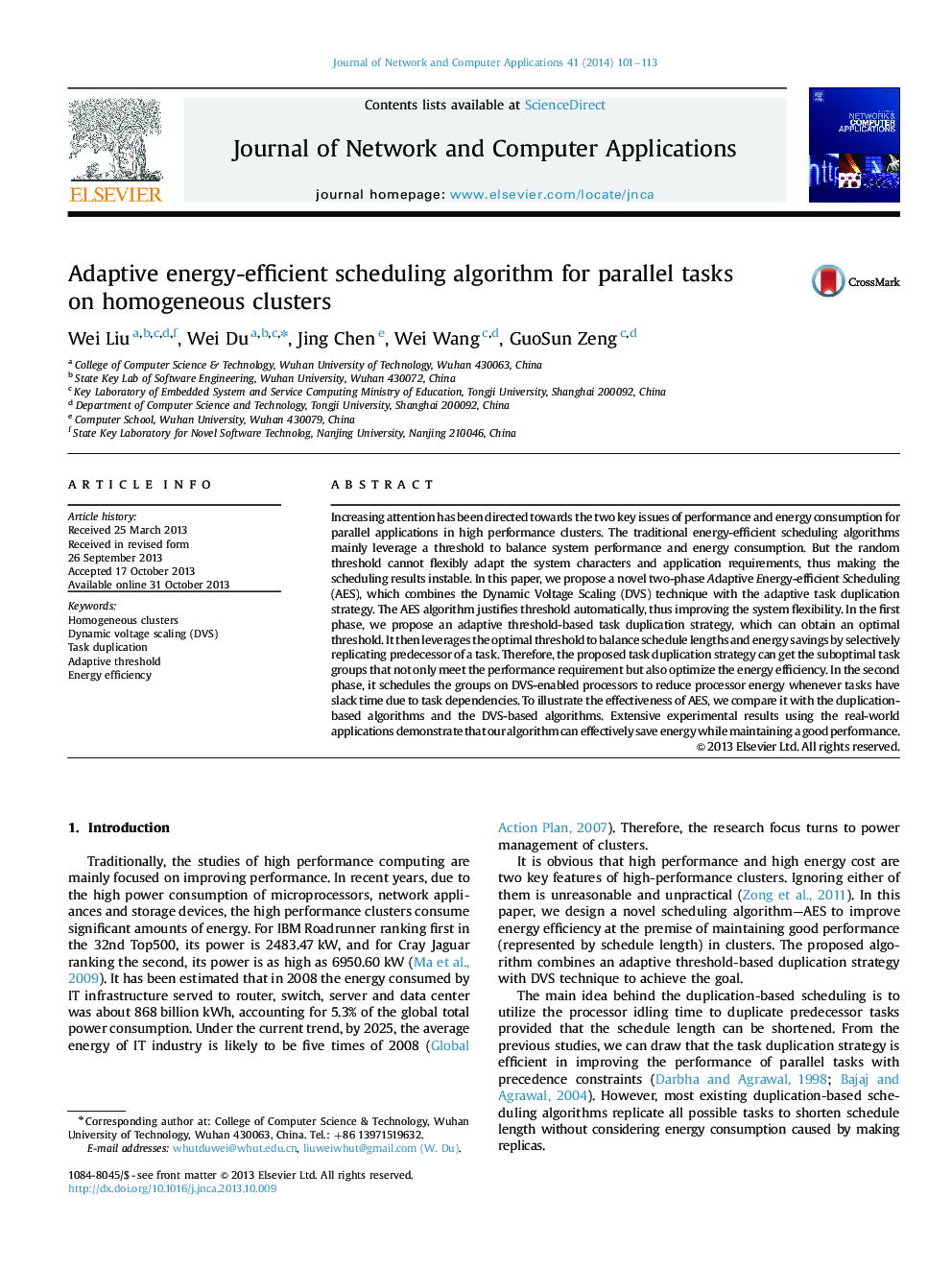| Article ID | Journal | Published Year | Pages | File Type |
|---|---|---|---|---|
| 457216 | Journal of Network and Computer Applications | 2014 | 13 Pages |
Increasing attention has been directed towards the two key issues of performance and energy consumption for parallel applications in high performance clusters. The traditional energy-efficient scheduling algorithms mainly leverage a threshold to balance system performance and energy consumption. But the random threshold cannot flexibly adapt the system characters and application requirements, thus making the scheduling results instable. In this paper, we propose a novel two-phase Adaptive Energy-efficient Scheduling (AES), which combines the Dynamic Voltage Scaling (DVS) technique with the adaptive task duplication strategy. The AES algorithm justifies threshold automatically, thus improving the system flexibility. In the first phase, we propose an adaptive threshold-based task duplication strategy, which can obtain an optimal threshold. It then leverages the optimal threshold to balance schedule lengths and energy savings by selectively replicating predecessor of a task. Therefore, the proposed task duplication strategy can get the suboptimal task groups that not only meet the performance requirement but also optimize the energy efficiency. In the second phase, it schedules the groups on DVS-enabled processors to reduce processor energy whenever tasks have slack time due to task dependencies. To illustrate the effectiveness of AES, we compare it with the duplication-based algorithms and the DVS-based algorithms. Extensive experimental results using the real-world applications demonstrate that our algorithm can effectively save energy while maintaining a good performance.
